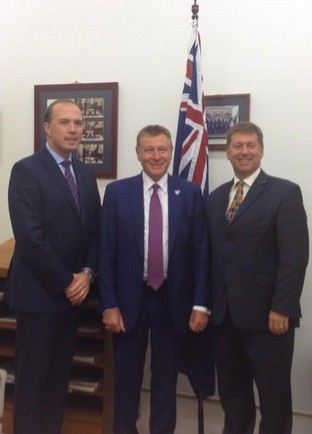
330,000 Australians, 900,000 Britons and 44 million people around the world are living with dementia. These numbers are set to at least double over the next 30 years. It’s not only a human tragedy for those who suffer, but there are big economic and social costs for society. For 70% of Australians in their fifties, it is the disease they most fear.
So dementia is becoming an increasing priority for governments around the world. PM Cameron gave it a major focus during the UK’s G8 Presidency last year, hosting a G8 Dementia Summit. The Summit set an ambitious goal of identifying a cure or a disease modifying therapy by 2025. This will require significant funding and research effort by governments and the pharmaceutical industry.
The summit also called for a World Dementia Envoy to draw together international expertise. PM Cameron appointed Dr Dennis Gillings, founder of pharma giant Quintiles, as the first Envoy earlier this year. He is visiting Australia this week. My team set up a series of calls on government and academia, and I accompanied him in meetings with Health Minister Peter Dutton and Social Services Minister Kevin Andrews.
Australia has a pretty good story to tell on dementia. The government allocated $200m for dementia research in its budget this year. And, no doubt helped by the great climate, Australians are well aware of the importance of healthy lifestyles which can help reduce the onset of dementia: “if it’s good for the heart it’s good for the head”. But, as in Britain and elsewhere, the challenge will continue to grow as our societies age rapidly. Dr Gillings found a lot of common ground with his Australian interlocutors, who agreed that we need to work even more closely with each other and with other international partners in a concerted effort to tackle dementia.
